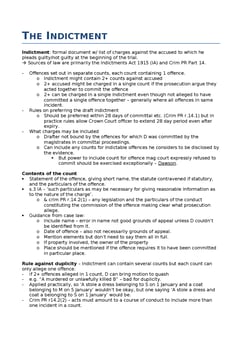R v Gibbins and Proctor [1918] 13 Cr App R 134; [1918] 4 WLUK 25
Judgement for the case R v Gibbins and Proctor
Table Of Contents
KEY POINTS
In the legal process, conviction declares someone guilty of a crime, and sentencing determines the appropriate punishment. This stage ensures justice is served by aligning penalties with the severity of offenses.
A joint trial involves multiple defendants facing similar charges in a single proceeding. While streamlining legal processes, it poses challenges in balancing the rights of each defendant, aiming for a fair and impartial trial.
-
Child negligence addresses caregivers' failure to fulfill their responsibilities to a child's well-being.
Legal systems prioritize child protection, imposing penalties on those guilty of neglect and ensuring thorough examination of the circumstances to safeguard the child's rights.
Child maintenance obligates noncustodial parents to provide financial support for their child post-divorce.
Courts determine the amount based on the parent's financial capability, ensuring the child's best interests are prioritized for stable growth.
FACTS
-
In this case, Walter Gibbins and Edith Rose Proctor ("Appellants"), were convicted for the murder of Nelly, a seven-year-old girl under their care.
The victim, the daughter of Gibbins, lived with the couple and Gibbins' other children.
The girl was allowed to starve to death.
Proctor, who was Gibbins' mistress, harbored strong animosity towards the victim and had a documented history of abusing her.
Gibbins, the girl's father, entrusted Proctor with money for the care of his children and maintained that he believed the child was being properly looked after.
Despite the murder conviction, Gibbins appealed the decision, contending that he should only be held accountable for manslaughter.
JUDGEMENT
The Court of Criminal Appeal affirmed the convictions for murder.
The court determined that the conscious failure to fulfill this legal duty directly contributed to the child's demise.
The judgment in Gibbins and Proctor serves as a poignant reminder of the critical importance of recognizing and fulfilling moral and legal obligations within family relationships, particularly when financial support is extended for the well-being of all family members.
Justice Darling
In delivering the judgment, underscored that Proctor, as Gibbins' live-in partner, had received explicit financial support from him for food intended to cover all three of them, including the child.
Emphasized the conversion of Proctor's moral obligation, arising from the familial ties and financial assistance provided by Gibbins, into a legal duty to safeguard the child.
Maintained that Proctor, owing to her familial relationship and the monetary assistance, bore a moral and legal duty to care for the child.
The intentional neglect of this legal duty resulted in the untimely death of the child.
COMMENTARY
-
The legal process involves conviction, declaring guilt, and sentencing, determining appropriate punishment based on the severity of offenses.
Joint trials streamline legal proceedings but present challenges in balancing defendants' rights for a fair trial.
-
Child negligence addresses caregiver failure, prioritizing child protection and imposing penalties for neglect.
Child maintenance obligates noncustodial parents to support their child post-divorce, considering financial capability for their well-being.
In the case of Gibbins and Proctor, convicted for murdering Gibbins' daughter, Nelly, the Court of Criminal Appeal affirmed the murder convictions. The court emphasized Proctor's moral and legal duty, from familial ties and financial assistance.
Gibbins' appeal for manslaughter was rejected, highlighting the importance of recognizing and fulfilling such obligations within family relationships.
For Further Study on R v Gibbins and Proctor
Need instant answers? Our AI exam tutor is here to help.
Ask questions 🙋 Get answers 📔 It's simple 👁️👄👁️
Our AI is educated by the highest scoring students across all subjects and schools. Join hundreds of your peers today.
Get StartedSimilar Cases
Related Product Samples
These product samples contain the same concepts we cover in this case.
| Criminal Procedure and Evidence | Appeals, Retrials & Co Defendants Notes (7 pages) |


